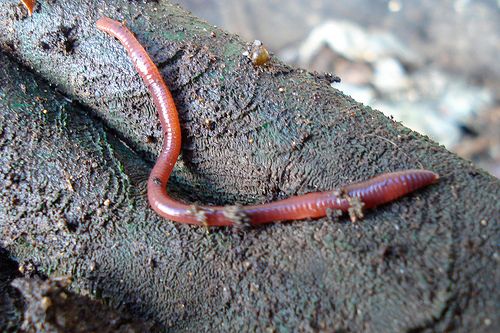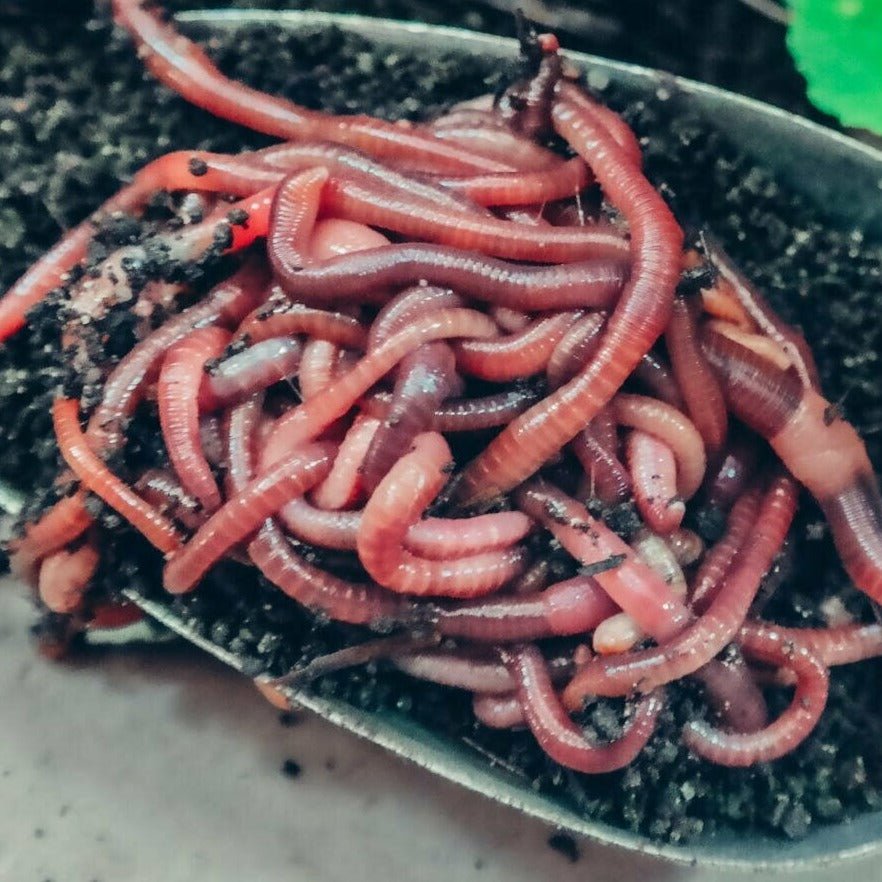Open the Keys of Red Wigglers: Your Overview to Composting Success
The assimilation of red wigglers into composting methods provides a substantial possibility for boosting dirt health and wellness and advertising sustainability. These microorganisms are not just reliable recyclers of natural waste; they use a myriad of benefits that can transform garden management. Understanding their needs and behaviors is essential for optimizing their potential, from establishing an ideal worm container to feeding them the appropriate products. As we check out the vital elements of successful vermicomposting, one could ask yourself how these little creatures can cause an extra vibrant and productive garden ecological community.

What Are Red Wigglers?
Indigenous to The United States And copyright, they are frequently located in decaying fallen leaves and compost heap, where they play an essential duty in nutrient recycling. Their adjustment to residing in a wet, aerobic setting enables them to take in huge quantities of organic waste, simplifying right into nutrient-rich castings that improve soil wellness.
Red wigglers recreate quickly, with a solitary worm efficient in producing numerous cocoons every week, each containing several hatchlings. This quick recreation price contributes to their performance in composting operations. They choose temperature levels in between 60 ° F and 80 ° F, and their activity level boosts dramatically within this variety, additional assisting in the decomposition procedure. Recognizing the biology and behavior of red wigglers is necessary for optimizing their possibility in composting applications.
Benefits of Utilizing Red Wigglers
Harnessing the power of red wigglers in composting supplies many advantages that enhance soil health and wellness and promote sustainable waste monitoring. These amazing organisms successfully break down natural matter, transforming kitchen scraps and lawn waste into nutrient-rich vermicompost. This ended up product is remarkably useful for plant development, as it enhances dirt structure, boosts wetness retention, and enhances vitamins and mineral accessibility.

Establishing Your Worm Bin
Creating an efficient worm bin is an uncomplicated process that can significantly improve your composting efforts. The very first step is selecting a suitable container. Worm bins can be made from plastic storage space bins, wooden boxes, or readily offered worm containers. Guarantee the container has sufficient water drainage and ventilation openings to maintain optimum moisture levels and airflow.
Following, prepare the bedding material, which acts as the worms' environment. A mix of shredded paper, cardboard, and coconut coir works well, providing a comfortable environment for the worms. Aim for a bed linen deepness of concerning 4-6 inches. Moisten the bed linen gently, ensuring it resembles a moist sponge without excess water merging near the bottom.

Feeding Your Red Wigglers
To make sure the wellness and efficiency of your red wigglers, it is important to provide them with a well balanced diet plan that meets their dietary requirements. Red wigglers flourish on a varied variety of natural materials, which not just supply necessary nutrients however also advertise effective composting.
Start by integrating kitchen scraps such as veggie peels, fruit cores, and coffee grounds. Stay clear of citrus fruits, onions, and garlic, as these can be damaging to worm health. In addition, introduce shredded paper, cardboard, and completely dry leaves to develop a well-aerated environment.
Feeding regularity ought to be checked; normally, worms can eat half their body weight in food weekly. It is vital to avoid overfeeding, as excess food can cause unpleasant odors and bring in insects. An excellent practice is to include food in small quantities, permitting worms to process it prior to presenting much more.
Keeping moisture levels is additionally vital; the bed linen must be moist yet not soggy. Be sure to on a regular basis check the temperature and pH levels of the bin to make sure an optimum environment for your red wigglers, eventually boosting their composting performance.
Harvesting and Utilizing Compost
A successful composting process with red wigglers culminates in the rich, dark garden compost understood as vermicompost, which can considerably improve dirt health and wellness and plant growth. Harvesting this nutrient-dense material commonly occurs every three to 6 months, relying on the dimension of your system and the amount of organic matter being refined.
To gather, gently separate the compost from the worms and any kind of undecomposed products. One efficient method entails relocating the components of the bin away and adding fresh bed linen and food to the vacant area, encouraging the worms to move. After a few days, the compost can be accumulated from the opposite side.
It is crucial to use vermicompost properly to optimize its benefits. By including vermicompost into your gardening program, you not only reuse natural waste however additionally create a thriving ecological community that sustains sustainable horticulture practices.
Final Thought
In summary, red wigglers function as outstanding allies in composting initiatives, changing organic waste right into nutrient-rich vermicompost (Red Wiggler Express). Their one-of-a-kind biological features and reliable waste handling capacities add significantly to lasting horticulture practices. By comprehending the optimal conditions for their habitat, feeding demands, and garden compost harvesting techniques, garden enthusiasts can boost soil health and wellness and promote look at these guys plant vitality. Accepting vermicomposting not only reduces garbage dump waste yet likewise fosters a more eco liable strategy to horticulture and source management.
Comments on “Lake Hickory Bait Provides the Resources You Need for a Perfect Lawn”